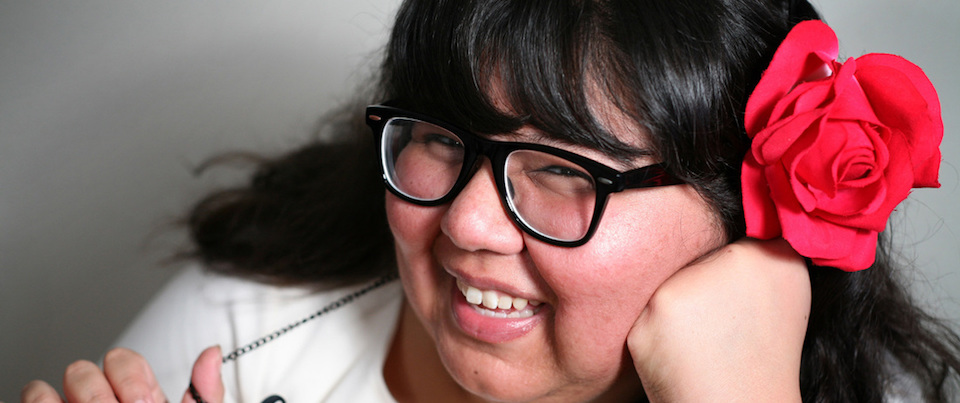At the 2014 Game Developers Conference in San Francisco, Manveer Heir gave a speech that could be seen as an indictment of the videogame world—not only for misogyny and racism, but also homophobia. A gameplay designer at BioWare, he had analyzed characters in the top 25 games from 2013.
“In exactly zero of these games is the player explicitly LGBTQ,” Heir said. Instead he cited a notable scene from Grand Theft Auto 5 that includes several transgender characters: “Here we find not people, but objects of ridicule. These women are wearing ridiculous clothing. The artists spent time drawing visible bulges in their skirts and underwear, and their occupation is that of a prostitute. The game does everything to remind you that these trans women were born male and that we should laugh at them for being different from us,” he railed at the industry audience. “We make games with these negative stereotypes: black criminals, effeminate gays, brown terrorists, trans prostitutes and women that are sexual objects.”
Today Heir’s critique is one of many gaining traction in the gaming industry. Sexism and homophobia complaints recently lit up Internet message boards and Twitter feeds as a controversy that would become known as GamerGate produced open hostility and threats of violence against several feminist critics.
It was amid this turmoil that some 250 academics, gamers and developers came to the UC Berkeley campus last weekend for the second annual Queerness and Games Conference (QGCon).
In the lobby of South Hall, a collection of laptops atop folding tables lined the walls—a makeshift videogame arcade. Participants sampled more diverse indie games and attended panels with titles such as “Designing Inclusive Communities” and “Kinky, Queer, Disruptive.” But while QGCon represented a relatively small community of LGBT gamers and designers, the conference is indicative of a shift happening in the gaming industry as a whole.
“There has been this underrepresentation and homophobia in games themselves—in how they represent queer people. It’s been in the games industry and in the games community,” said QGCon co-organizer Bonnie Ruberg. “In all those places it’s felt really unsafe to be queer for a very long time.”
Ruberg, a Ph.D. candidate at Berkeley in the departments of New Media, Gender and Women’s Studies, and Comparative Literature, says games have reached a pivotal point.
“They’re super popular, they make a ton of money, but they’re still struggling with whether they take social issues seriously or whether they’re just for fun,” she said. “I think that’s the clash we’re seeing.”
The embodiment of that clash is GamerGate, an Internet-based campaign against several female game journalists and developers that has moved from Twitter feeds and message boards to nearly daily headlines in publications that include The New Yorker and The New York Times. When media critic Anita Sarkeesian created Feminist Frequency, a website featuring a series of online video critiques about the sexist portrayals of women in mainstream games, it triggered a staggering backlash. What started with verbal abuse over social media became threats of physical violence that eventually led to Sarkeesian leaving her home in fear for her safety. GamerGate originally claimed to stem from criticism over journalistic ethics, but it became something much darker. Earlier this month, just before Sarkeesian was to present a lecture at Utah State University, an anonymous email threatened “the deadliest school shooting in American history,” unless her speech was cancelled. In March, at the same Game Developers Conference where Manveer Heir spoke so passionately about poor representation in games, organizers received a bomb threat when Sarkeesian was to be given the 2014 Ambassador’s Award for engaging in media criticism to help games “advance to a better place.”
Ruberg at QGCon also used to write frequently about gaming. “Being a games journalist and a feminist means that you got harassed on the Internet every day,” she said. “You’d publish an article and then you’d get death threats.” And while GamerGate targeted a handful of female gamers who are advocating for better representation of women, feminist values overlap into LGBT representation. According to Ruberg, while QGCon focuses on LGBT issues, “those are always going to be related to issues of sexism, issues of racial discrimination.”
At QGCon, the recent GamerGate commotion created an even greater sense of urgency for discussion.
The “gay games” on display were decidedly indie-minded: low budget, each with a one- or two-person design team.
One was called “A Russian Valentine: A Day in the Life of Two Gay Russian Males.” In the game, two pink, hand-holding pixelated characters navigate around a screen of blocky houses. Also on-screen are a half-dozen police officers. When the gay couple gets too close, the officers start chasing them, waving batons. There’s an unsettling contradiction: It’s the comic innocence of 1980s Atari-era animation paired with seething social commentary.
Another game, “Queers in Love at the End of the World,” is all narrative and no graphics. Made by Anna Anthropy, it’s set up like a Choose-Your-Own-Adventure book where the player chooses among several hyperlinked text phrases that lead to yet more choices. But as you read, in one corner of the screen, a clock ticks down the final ten seconds before the end of the world. You choose between phrases such as “Kiss Me Please,” “Don’t Let Me Go,” “I Love You.” Precious seconds scroll by as you hurriedly click through links, racing the clock: “Look Into Her eyes” — click — “Look Deeper” — click — “Worlds, Galaxies, Universes” — click — “Forever” — click — “Forever” — click “Forever.”
Yet another game was the two-player “Realistic Kissing Simulator” in which players navigate big, sloppy tongues around the other player’s face, poking eyes or nose, or just floating there, cobra-like, in front of the other player’s advances. There are no points to be won, no real competition. It’s unapologetically silly, non-gender-specific and non-sexualized. The game’s creators, Loren Schmidt and Jimmy Andrews, say their idea was to re-create the awkwardness of a first kiss.
Despite their titles, explicitly LGBT characters are rarely visible in these games. More often the characters are vague, offering a role that any player can embody as they choose. Still, few large gamemakers—companies known as AAA developers—seem eager to engage in a conversation about LGBT representation. Large developers WarGaming America, Cryptic Studios and Electronic Arts failed to respond to phone calls, emails and in one case, visits to their offices, to get their perspective.
One developer willing to discuss the topic is Jeffery Yohalem, a writer and designer with French gamemaker Ubisoft. Ubisoft has been one of the few companies to feature games with homosexual characters, such as “Assassin’s Creed.” At QGCon, Yohalem gave a talk called “Queering AAA” in which he offered a market-driven approach to changing games. For him, an ideal model is the film industry.
“In Hollywood you have these prestige films coming out that are going to win the Oscars, which are about diversity and difficult, risky subjects. But then, you have the blockbusters that play it safe.” Yohalem said the gaming industry should also diversify between niche markets and big money-makers.
Conference participants frequently drew parallels to movies. Ruberg said when film emerged, it was seen as silly and frivolous, the way games largely are now. But as the medium matured, filmmakers began using it as a way to grapple with serious social issues. “Games right now are at a crossroads where society is about to accept them as a mature medium,” Yohalem said.
Matt Conn, who organizes the LGBT-themed GaymerX gathering in San Francisco agrees that there’s a shift underway in gaming, as simple design platforms make it easier for individuals to create their own games. His next project, the game “Read Only Memories,” features a reporter trying to solve a kidnapping. He set it in a future San Francisco so he can make the powerful LGBT characters that he hopes to see.
“Because it’s 50 years in the future, it wouldn’t be weird to think that there would be people who would be non-gender binary, or trans, or gay, in positions of power,” he says. “Fifty years ago, no one would think that we’d have a black president. Now we do. Right now, no one would say a gay guy could run for president. Right now that wouldn’t happen; 50 years from now, maybe, probably.”




















